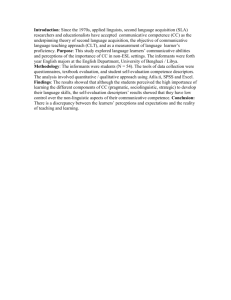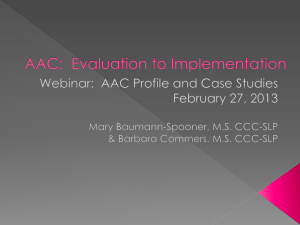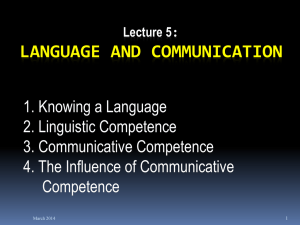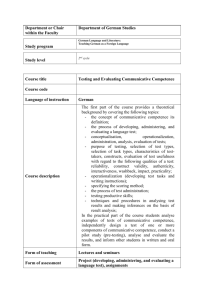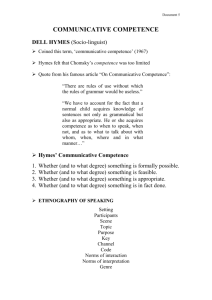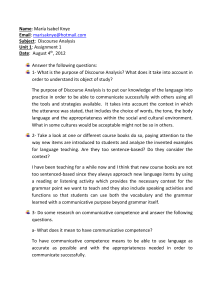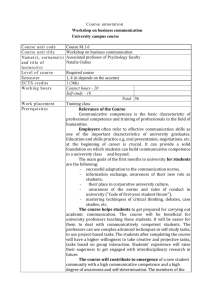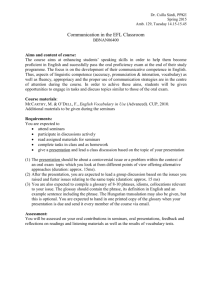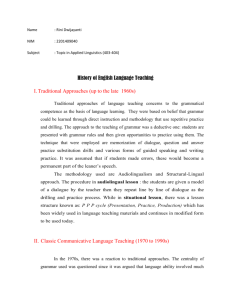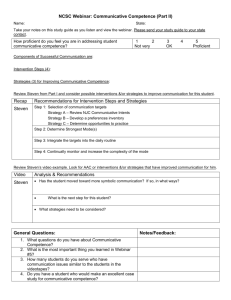pubdoc_3_941_1013
advertisement
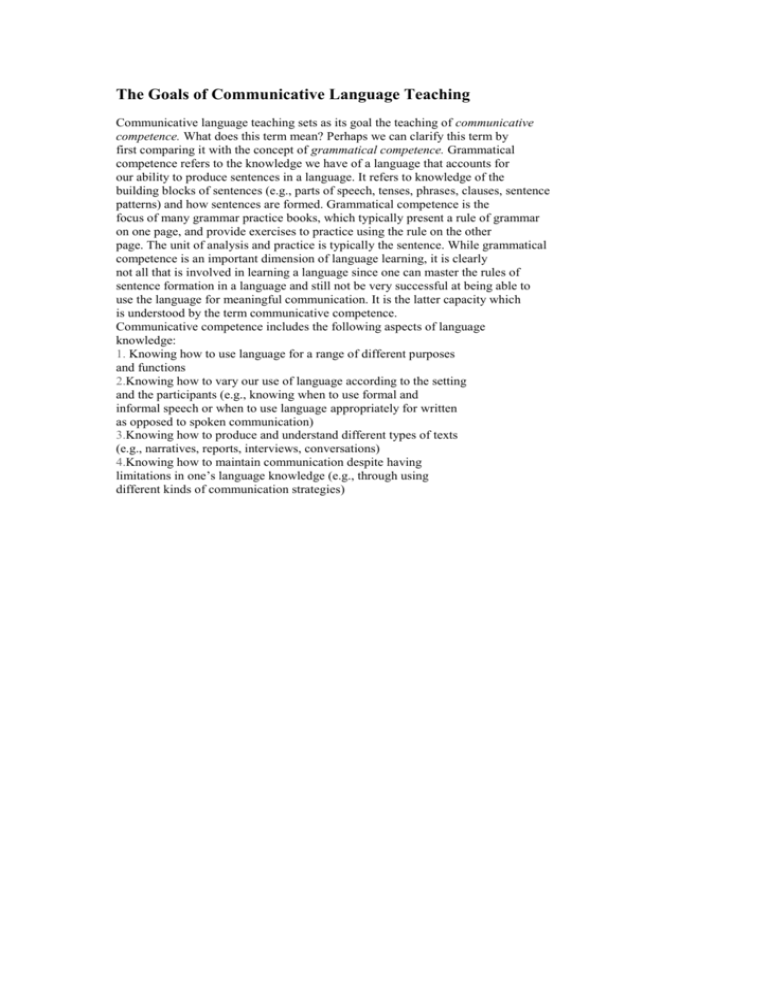
The Goals of Communicative Language Teaching Communicative language teaching sets as its goal the teaching of communicative competence. What does this term mean? Perhaps we can clarify this term by first comparing it with the concept of grammatical competence. Grammatical competence refers to the knowledge we have of a language that accounts for our ability to produce sentences in a language. It refers to knowledge of the building blocks of sentences (e.g., parts of speech, tenses, phrases, clauses, sentence patterns) and how sentences are formed. Grammatical competence is the focus of many grammar practice books, which typically present a rule of grammar on one page, and provide exercises to practice using the rule on the other page. The unit of analysis and practice is typically the sentence. While grammatical competence is an important dimension of language learning, it is clearly not all that is involved in learning a language since one can master the rules of sentence formation in a language and still not be very successful at being able to use the language for meaningful communication. It is the latter capacity which is understood by the term communicative competence. Communicative competence includes the following aspects of language knowledge: 1. Knowing how to use language for a range of different purposes and functions 2.Knowing how to vary our use of language according to the setting and the participants (e.g., knowing when to use formal and informal speech or when to use language appropriately for written as opposed to spoken communication) 3.Knowing how to produce and understand different types of texts (e.g., narratives, reports, interviews, conversations) 4.Knowing how to maintain communication despite having limitations in one’s language knowledge (e.g., through using different kinds of communication strategies)
